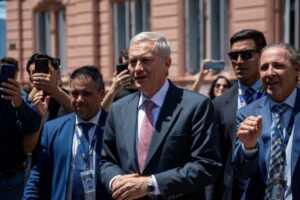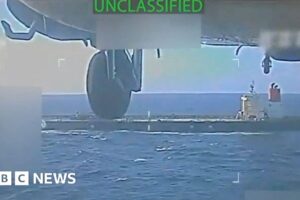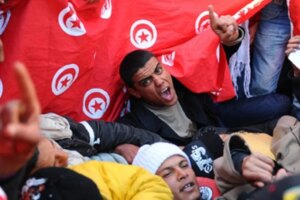
Neighbouring countries agree on terms of economic cooperation in several areas, including energy and supply chains for minerals.
The Democratic Republic of the Congo (DRC) and Rwanda have agreed on terms of economic cooperation in several sectors, as the two countries move towards delivering on a peace deal signed in June.
The tenets agreed on Friday summarise a regional economic integration framework, which includes elements of cooperation on energy, infrastructure, mineral supply chains, national parks and public health, according to the State Department of the United States, which brokered the deal.
A source familiar with the matter said a preliminary draft of the framework has been agreed to and there would now be an input period to get reaction from the private sector and civil society before it is finalised, the Reuters news agency reported.
In the statement, Rwanda and the DRC affirmed that each country has “full, sovereign control” over the exploitation, processing and export of its natural resources, and recognised the importance of developing mineral processing and transformation capacity within each country, according to Reuters.
The DRC views the plundering of its mineral wealth as a key driver of the conflict between its forces and Rwanda-backed M23 rebels in the country’s east that has killed thousands of people.
‘Mineral deal first’
The deal signed in Washington, DC, on June 27 aims to attract Western investment to a region rich in tantalum, gold, cobalt, copper, lithium and other minerals. According to Human Rights Watch, it is “a mineral deal first, an opportunity for peace second”, linking economic integration and respect for territorial integrity with the promise of billions of dollars of investments.
The two countries are also committed to ensuring that the minerals trade no longer provides funding to armed groups and to creating a world-class industrial mining sector in the region. The deal would also ensure better cross-border interoperability on mineral supply chains, according to the statement.
They also agreed to connect new infrastructure to the US-backed Lobito Corridor, underscoring Washington’s aim of greater access to resources in the region and efforts to counter China.
The Ruzizi III hydropower project and Lake Kivu methane exploitation were the only specific projects mentioned in the statement, despite US emphasis on critical minerals. The countries said they intended to prioritise financing for Ruzizi and work together to exploit methane gas sustainably.
Friday’s announcement comes after the two countries held the first meeting of a joint oversight committee on Thursday in a step towards implementing the deal, even as other commitments are yet to be fulfilled.
In the Washington agreement, the two countries pledged to implement a 2024 agreement that would see Rwandan troops withdraw from eastern DRC within 90 days.
The Congolese military’s operations targeting the Democratic Forces for the Liberation of Rwanda (FDLR), a Congo-based armed group that includes remnants of Rwanda’s former army and militias that carried out a 1994 genocide, are meant to conclude over the same timeframe.
The deal also said the DRC and Rwanda would form a joint security coordination mechanism within 30 days and implement a plan agreed upon last year to monitor and verify the withdrawal of Rwandan soldiers within three months.
But 30 days from the signing have passed without a meeting of the joint security coordination mechanism.
The source familiar with the matter said the joint security coordination mechanism meeting would be held on August 7 in Addis Ababa.
The DRC is also involved in direct talks with M23 hosted by Qatar, and last month the two sides pledged to sign a separate peace agreement by August 18, though many outstanding details need to be negotiated.





